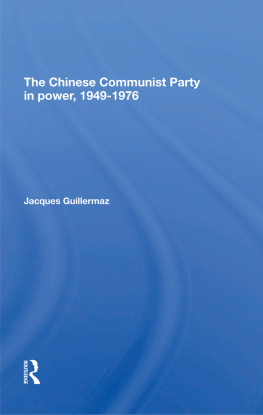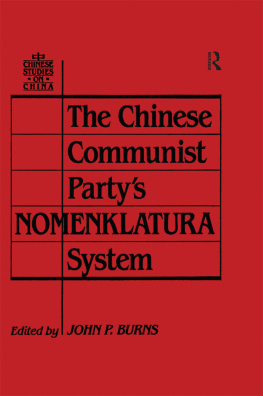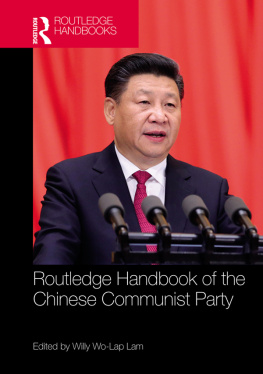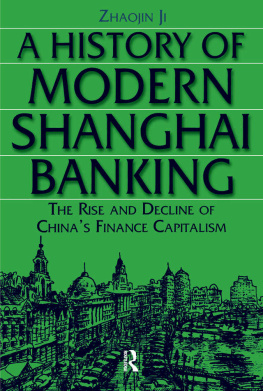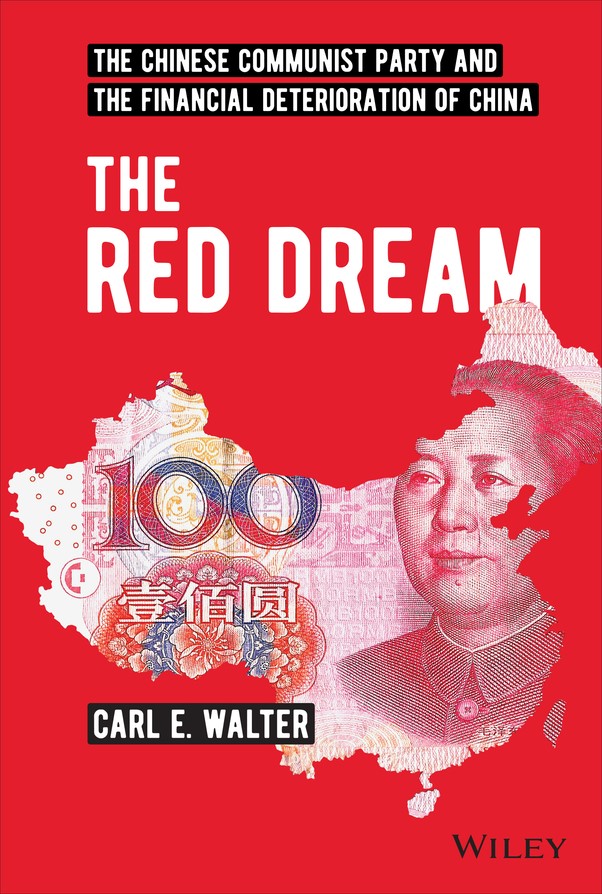
Table of Contents
List of Tables
- Chapter 1
- Chapter 2
- Chapter 3
- Chapter 4
- Chapter 5
- Chapter 6
- Chapter 7
- Chapter 8
- Appendix
List of Illustrations
- Chapter 1
- Chapter 2
- Chapter 3
- Chapter 4
- Chapter 5
- Chapter 6
- Chapter 7
- Chapter 8
Guide
Pages
The Red Dream
The Chinese Communist Party and the Financial Deterioration of China
Carl E. Walter

This edition first published 2022
Copyright 2022 by John Wiley & Sons, Ltd.
All rights reserved. No part of this publication may be reproduced, stored in a retrieval system, or transmitted, in any form or by any means, electronic, mechanical, photocopying, recording or otherwise, except as permitted by law. Advice on how to obtain permission to reuse material from this title is available at http://www.wiley.com/go/permissions.
The right of Carl E. Walter to be identified as the author of this work has been asserted in accordance with law.
Registered Offices
John Wiley & Sons, Inc., 111 River Street, Hoboken, NJ 07030, USA
John Wiley & Sons Singapore Pte. Ltd, 1 Fusionopolis Walk, #06-01 Solaris South Tower, Singapore 138628
Editorial Office
1 Fusionopolis Walk, #06-01 Solaris South Tower, Singapore 138628For details of our global editorial offices, customer services, and more information about Wiley products visit us at www.wiley.com.
Wiley also publishes its books in a variety of electronic formats and by print-on-demand. Some content that appears in standard print versions of this book may not be available in other formats.
Limit of Liability/Disclaimer of Warranty: While the publisher and authors have used their best efforts in preparing this work, they make no representations or warranties with respect to the accuracy or completeness of the contents of this work and specifically disclaim all warranties, including without limitation any implied warranties of merchantability or fitness for a particular purpose. No warranty may be created or extended by sales representatives, written sales materials or promotional statements for this work. The fact that an organization, website, or product is referred to in this work as a citation and/or potential source of further information does not mean that the publisher and authors endorse the information or services the organization, website, or product may provide or recommendations it may make. This work is sold with the understanding that the publisher is not engaged in rendering professional services. The advice and strategies contained herein may not be suitable for your situation. You should consult with a specialist where appropriate. Further, readers should be aware that websites listed in this work may have changed or disappeared between when this work was written and when it is read. Neither the publisher nor authors shall be liable for any loss of profit or any other commercial damages, including but not limited to special, incidental, consequential, or other damages.
Library of Congress Cataloging-in-Publication Data is Available:
ISBN 9781119896159 (Hardback)
ISBN 9781119896166 (ePDF)
ISBN 9781119896173 (epub)
Cover Design: Wiley
Cover Image: Nerthuz/Getty Images:
For Lesley Yu Yicen
Preface
It's been a decade since I sat in Beijing spending a couple of summers thinking and writing about China's financial system. In those days Fraser Howie (my co-author on other Wiley books), who had started working at real jobs in Singapore, and I would laugh when we dug up bits and pieces of the story that were new to us. But access to a good library was one thing I lacked in Beijing and I was interested in understanding how the country's fiscal system interacts with its banks. A stint at Stanford in 2013 solved that problem. What I found changed my thinking about China and led eventually to the writing of this book during another stint at Stanford in 2021. So here goes another attempt to influence the way we look at China's history with the emphasis on financial history.
My reading in 2013 led to the conclusion that the basic source of extreme leverage in China's banks, enterprises, and the state itself is found in the fiscal arrangements of its self-reliant local governments. Self-reliance and inadequate budgetary income have driven inefficient capital investment especially in an overgrown real estate sector and its millions of empty and unfinished apartments. There is a shadow fiscal system at the local levels that is so deeply imbedded in how the party operates locally that even the most determined fiscal reforms have ultimately been rejected by its immune system. In short, local debt, the obverse side of which is bank and enterprise lending, cannot be explained only by reference to the last decade of overflowing liquidity or poor management or the party's interference; it has always been a major feature of China's fiscal system.
The second observation is that the party, which can do whatever it wants, has failed to adjust its aspirations to the level of fiscal revenues that the official system can generate. The party recognizes no constraints; the pull of the China Dream may be too strong. But there are constraints in the real world. Each year the party presents a new central and local budget for the coming year to the National People's Congress. But after approval, there is no one who holds the party at any level accountable for borrowing excessively outside of this budget not simply to meet a budget gap, but to build unplanned infrastructure and buildings. Who said every provincial capital could have a 100-story building or two? And who is going to fund such lending or live in the buildings and use the infrastructure when the population in 2100 is the same as it was in 1976?
Looking into the fiscal system reminded me that China, as a modern country, is at best 20 years old. It has come a very long way in two decades, but it remains an unfinished project much influenced by history. It would be fair to say that in 1979 China had no fiscal system. During the Republican Era in the 1930s work had begun to establish one but was interrupted by events. In any event, Nanking's reach did not extend far beyond the city's walls. After the revolution Soviet advisors gave it a try as part of their effort to establish a planned economy. That didn't work for reasons that are well documented. From 1957 to the start of the reform era at best Beijing depended on negotiations with provincial governments and state enterprises for whatever fiscal revenues it could generate. Any semblance of a technical fiscal system was purely propaganda for outsiders.
Looking at this brief history, what stands out is the self-reliance of local governments at all levels. Prior to the revolution it was said that regional governments were run by warlords, so it is not surprising that a look at China's fiscal system today reveals the existence of a shadow fiscal system. Local governments and their party secretaries then, as now, are responsible for what happens in their jurisdictions. With little in the way of revenue trickling down from higher administrative levels, they must fend for themselves. And it has always been this way.
This is where banks come in. During the 1980s local officials generated what Beijing called extrabudgetary or extrasystem revenues by pilfering bank branches and state enterprises, all of which were owned locally. The scale of such income in some years exceeded official revenues, sometimes by a multiple. In 1994 Beijing was able to pass a Budget Law that for the first time specified types of taxes and what government level collected which tax. In the face of opposition by the richer provinces, Beijing committed the original sin, promising the majority poor provinces central government fiscal transfers to make up for shortfalls and, as a result, prohibited them from fiscal borrowing; there would be no need. Ever since, and especially in recent years, Beijing has had to borrow to make good on this promise, and the banks bought the government bonds.
Next page


